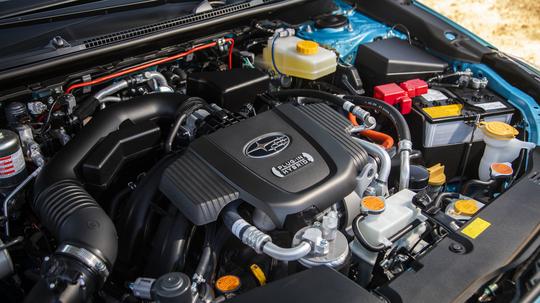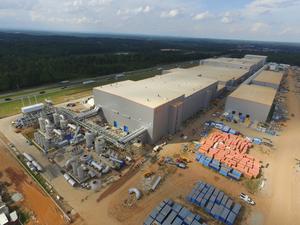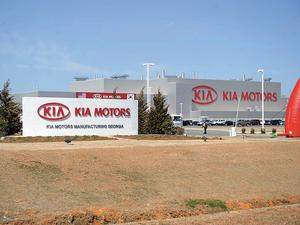
Leo Raudys believes Georgia startups have an untapped opportunity — recycling electric vehicle batteries.
Raudys, CEO of Call2Recycle, said ideas could be focused on collecting and reusing valuable materials within the batteries. He calls the current process inefficient and chaotic.
“There’s an enormous opportunity to try to make things better,” said Raudys, who became CEO this year after working with the 20-year-old not-for profit company in corporate sustainability roles.
Raudys may be onto something.
High demand
Georgia is a hub for automotive manufacturing. Today, those automakers are ramping up production of electric vehicles, which are powered by lithium-ion batteries. Periodically, the batteries need to be replaced.
Omar Asensio, a professor at Georgia Tech’s School of Public Policy who researches electric vehicles, said more than 200 automotive-related facilities across the state are prioritizing electrification research and development.
South Korea-based SK Innovation put Georgia on the map in the electric vehicle market when it chose the state for two massive battery plants. After being tied up in legal disputes, it is set to start commercial production in early 2022. By the end of this year, it will employ 1,000 and produce enough batteries for 200,000 electric vehicles.
TEKLAS, a Turkish manufacturing company and electric vehicle parts supplier, announced it will open its first North American facility in Gordon County in November.
GEDIA Automotive Group plans to invest $85 million to build a new 180,000-square-foot manufacturing facility in Whitfield County, and Apple may also be planning to make its first autonomous, electric “Apple Car” at Kia’s assembly plant in West Point.
Worldwide, about 2.1 million electric cars were sold in 2019. Sales have grown about 30% almost every year for the past decade, according to the International Energy Agency, an intergovernmental organization based in Paris. The agency predicts growth will continue as manufacturers electrify more types of vehicles.
Yet, even as electric vehicle production speeds up, recycling EV batteries is falling behind. The batteries are also used in electronic devices and renewable energy storage — all booming markets.
SK Innovation can supply the car batteries, but the company also needs to have sources for the materials inside the battery, which are in high demand around the world.
Closing the loop
Throwing depleted batteries into a landfill creates economic and environmental harm, Raudys said. The batteries contain valuable materials, such as lithium, nickel and cobalt. But, the recycling market isn’t equipped to efficiently extract them.
“Right now it’s not truly circular,” said Raudys of traditional battery recycling. “Even though things get recycled, the ideal state would be to reclaim those materials as close to 100% as possible and try to bring them back into the energy supply chain as batteries.”
If a startup created a more efficient process, it might catch the attention of venture capital and private equity, Raudys said.
Atlanta’s Nexus Fuels shows how lucrative innovation in waste management can be. The startup takes hard-to-recycle plastics and converts them back into oil, which are sold to manufacturers to make more plastics.
Atlanta telecommunication giant Cox Enterprises was impressed. It provided an initial investment to Nexus Fuels that funded a commercial facility. This year, Cox invested another $20 million to help it scale.
If another company can similarly close the loop for lithium-ion batteries, that would capture an important component of the electric vehicle supply chain.
That’s only if the batteries make it to recycling facilities.
Call2Recycle estimates only 10-15% of batteries are recycled. Lithium-ion batteries are difficult to handle logistically, and consumers may not know where to bring them, Raudys said.
The batteries come in all different sizes, and there’s regulations on how to safely ship them because of fire hazards, creating a challenging landscape to manage. Call2Recycle has worked with companies such as The Home Depot to help the batteries safely reach the facilities, but Raudys said there’s more education and logistical infrastructure needed, poising another opportunity for new companies.
With Atlanta’s reputation as a logistics and supply chain hub, Raudys said the city has the talent to innovate these solutions.
“We’re going to transform our transportation system into all electric at some point,” Raudys said. “That’s a lot of batteries.”





